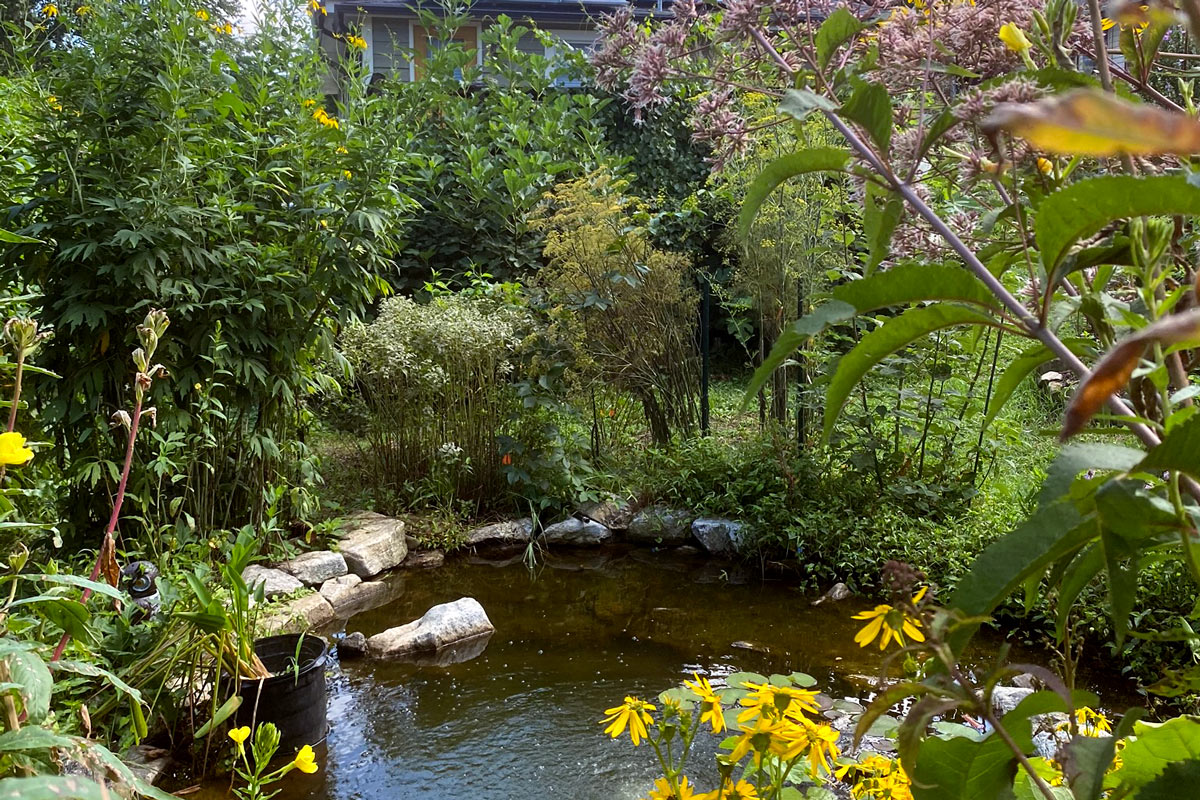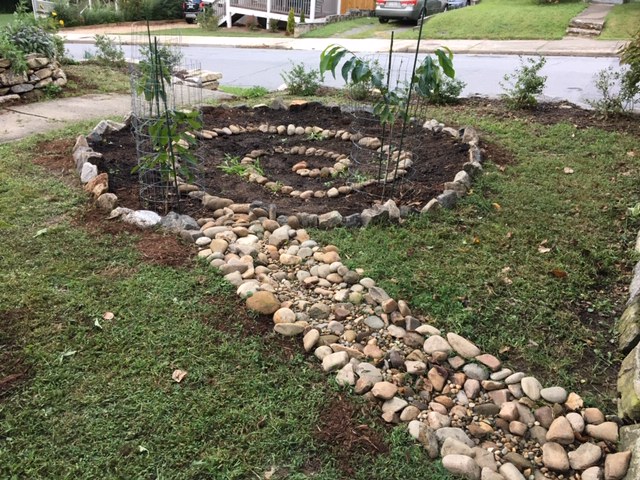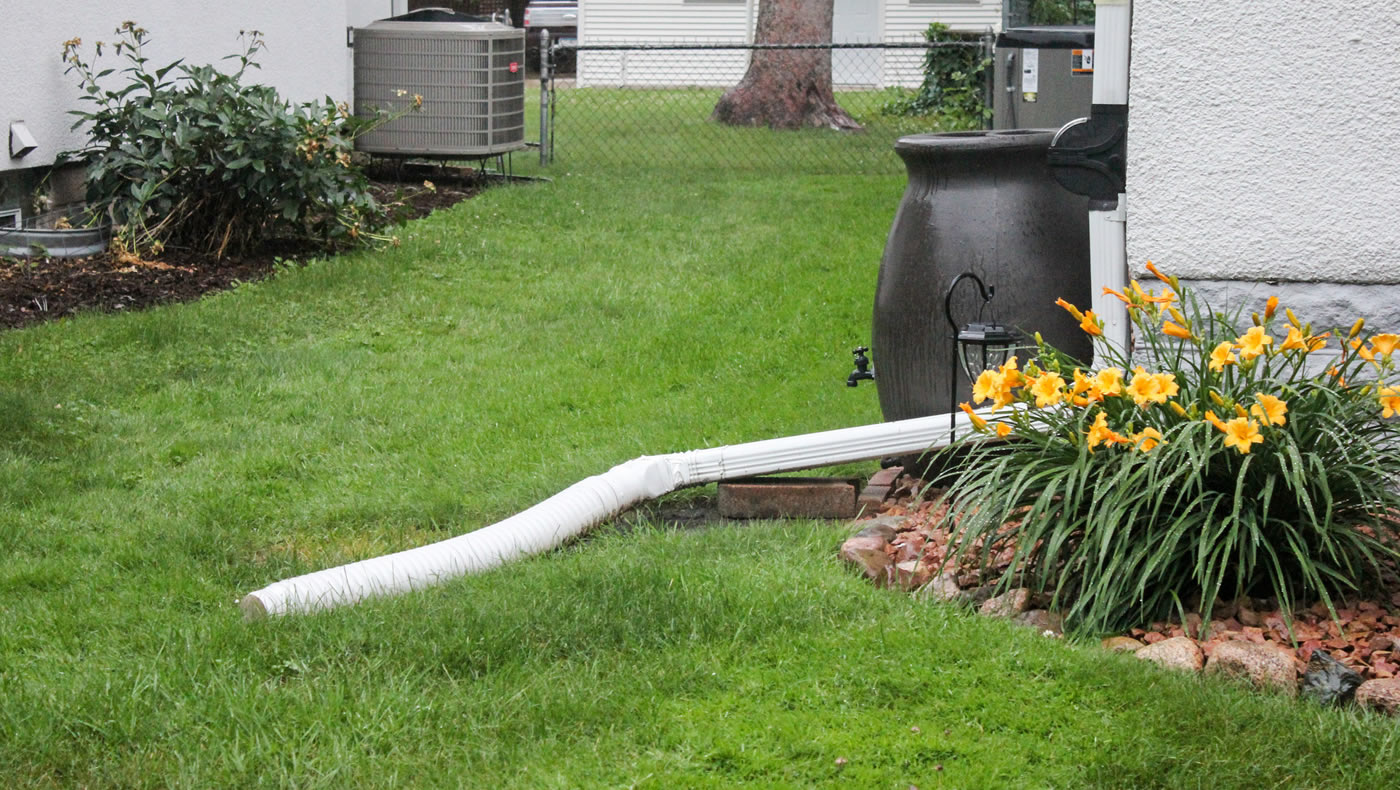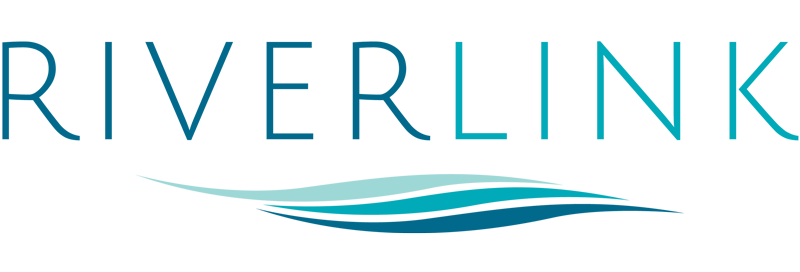
Disconnected Impervious Surface
Reducing the Impact of Runoff:
Urban development creates large areas of hardened surfaces including roofs and parking lots that direct rainwater into various channels to carry it away quickly. This presents a concern as stormwater is transported untreated to the nearest stream, and ultimately to the French Broad. As the impacts of climate change bring more frequent and intense storms and increased risk of flooding, Disconnected Impervious Surfaces, or DIS, represent simple, cost-effective techniques that direct runoff to a flat vegetated area such as a lawn or rain garden where it can soak into the ground. This process, known as infiltration, slowly and gently recharges groundwater and filters out pollutants. Keeping runoff on site and out of the storm sewer also reduces the burden on stormwater infrastructure, lessens downstream flooding, and protects water quality. These benefits will become increasingly valuable in strengthening our community’s climate resilience.
DIS in the Mountains was a research project funded by the North Carolina Land and Water Fund to find innovative solutions to implementing DIS in steep slope areas. RiverLink partnered with Blue Earth Planning, Engineering & Design, and Wildlands Engineering to develop and install innovative DIS designs that are suited to steep slope conditions.
In fall 2021, Asheville Drainage constructed DIS practices at six residential sites in the Central Asheville Watershed. Designs included “earth works” such as swales and basins. The project team monitored the DIS practices for two years and found that they were effective at capturing runoff and soaking it into the ground in steep slope conditions. Results from the research project will help make DIS a cost effective solution to runoff in mountainous areas.
Have Questions?
If you’d like to learn more, see the project handout or contact our Water Resources Manager, Renee Fortner at: renee@riverlink.org or (828) 252-8474 X 114



In Asheville, during a typical year, a 1,000 square foot roof would shed almost 30,000 gallons of rainwater. Now, imagine the runoff from the roofs of thousands of homes, and we’re dealing with many millions of gallons of stormwater runoff (and pollutants) flowing into our streams every year.
Construction Details
• Total of 8 rain basins and 4 swales constructed on six sites; soil mechanically “fluffed” (12- to 18-inch depth)
• Total roof area disconnected = 5,490 sf
• Compacted earthen berms; All downspouts piped underground via 4-inch PVC pipes
• Goal of 1.5-inch storm volume
• Volunteers planted 900 plants and 14 native plant species
• Total construction budget = $22,000
In addition to the technical challenges, stormwater management also involves a number of social challenges and opportunities. In order to address social obstacles of implementing DIS on a wide scale, students from the Sustainability Studies Program at Lenoir-Rhyne University- Asheville conducted social research using focus groups and surveys to assess residents’ awareness, understanding and perceived benefits and barriers of DIS. The social research findings will be used to develop educational materials on the negative impacts of stormwater runoff and emphasize DIS as a simple, cost-effective solution.
Helpful Resources
This project was generously funded by:

